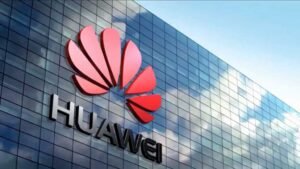Huawei executive Meng Wanzhou's defense accuses U.S. of misleading Canada about crimes for extradition.
Legal arguments presented by the defense of Meng Wanzhou would delay the extradition process to which she is subject, due to the charges filed by the United States in the case of the Asian telecommunications company, Huawei. In this opportunity, the lawyers of the Chinese company's CFO, allege that the United States has lied to Canada about Wanzhou's crimes, with the intention of ensuring her detention in Canadian territory. These defense allegations and the appearance of a PowerPoint presentation, considered a key piece of evidence against the executive, could delay the legal process even longer. Experts in the area agree that the conclusions of the case may be a decade away.
Two years ago, Donald Trump's administration put in place sanctions against Iran.which had been lifted after the installation of the Joint Comprehensive Plan of Action in 2015. The measure was taken through executive order number 13,846 of August 6 and includes actions focused on blocking support for the Iranian government, its purchases or the acquisition of U.S. bank notes or precious metals.
Huawei executive case
It is for this reason that CFO and daughter of Huawei's founder was requested by the U.S. government, after evidence was presented that she had provided the Iranian government with technological material and was linked to a bank fraud. The extradition process began in December 2018, when Wanzhou was detained at a Canadian airport on U.S. administration charges.
A PowerPoint presentation used by Wanzhou in a 2013 meeting with a banking institution.The Chinese company's relationship with Skycom Tech Co. Hong Kong who worked with Huawei in Iran. The United States presumes that Skycom is a front to hide activities in Iran and that the Chinese company's management put The Hong Kong and Shanghai Banking Corporation at risk by violating sanctions. However, the defendant's defense denies this information and accuses the U.S. of misleading the court.
Extradition, a slow legal process
Extradition is a judicial process through which a State makes a formal request to another State for an accused person to be extradited.The international arrest warrant involves an international arrest warrant, with the intent to prosecute him/her legally.
It is regulated not only by international treatiesThe effectiveness of the agreement requires binational agreements that protect this figure.
Despite the fact that Wanzhou's defense presented a number of arguments for more than a year to overturn the extradition, the process remains open. Hearings are expected to culminate in 2021, however, appeals have added delays to the proceedings.
Recall that an extradition may involve a government agency, the courts, or both, as appropriate.. Generally, the requesting State is required to demonstrate with compelling evidence the existence of a case for the prosecution of the accused, or that the offense has been established as such in the criminal law of the requested country.
Therefore, lawyers for the Huawei executive tried to appeal the case arguing that the alleged facts that generate a possible crime for which she is charged in the United States, is atypical in Canada.. The plea did not proceed, demonstrating that the action is also classified as a crime on Canadian soil. Despite this, the treatment given to the businesswoman at the time of her arrest and the use of the case in Trump's negotiations with the Chinese government continue to be used as justifications to dismiss the extradition request to the United States. In this process, the strategy of appealing the decisions will be used to prevent the case from moving forward, according to specialists in the area.
Canada house arrest and Wanzhou's legal status has strained relations geopolitical issues between the United States, Canada and China. Shortly after the imprisonment, the Chinese ambassador to Canada considered that the United States made Canada an accomplice. Doubts have also been cast on HSBC bank, as Chinese authorities have hinted at the bank's cooperation with the U.S. government.
BBC article notes that amid legal situation, Canada acts cautiously with the intention of not adding allegations to the decision on whether or not to annul the extradition. These international tensions, generated by the geopolitical panorama, also influence the delay of the process and do not provide sufficient clarity to anticipate the results.
Canadian judges and courts will have the task of deciding the extradition request.We have taken into account all the allegations presented and in accordance with the legal principles that support this figure in law. In cases of this nature, we consider it important not to lose sight of the following the guidelines of the principle of non-interference set forth in the Charter of the United Nationssigned on June 26, 1945 in San Francisco (United States), whose objective is to promote relations of friendship and trust among nations, based on respect for human rights and the self-determination of peoples.













